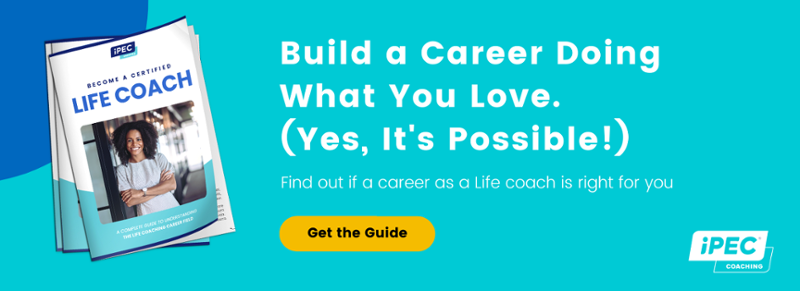How Conversations Create Happier Relationships with Jeff Saperstein
by Jordan Page, CPC, ELI-MP
Nov 19, 2020 | 3 minutes read
How might a small shift in the way you communicate in your relationships change your life?
Active listening is an important tool for creating conversations and relationships to affect change (both internal and external change)! Conversations are more than just speaking, after all.
Whether you’re wanting to learn how to better communicate with your kids, or your grandma, or your co-workers, the giving and receiving that needs to happen in a conversation is where true transformation happens.
Join us for this episode in the Energy Explorer Live Series where iPEC Director of Community, Jenny Wiley, and iPEC Board Member, Luke Iorio, chat with iPEC certified professional coach, Jeff Saperstein. Listen in as Jeff shares more about how to use conversation as a tool for transformation to ultimately create happier, healthier relationships with the people in your life.
You’ll also find a transcribed excerpt from their conversation below.
This interview is part of iPEC’s Energy Explorer Live Series, which highlights members of the iPEC Coach Community who are using their talents, drive, and highest selves in order to live their purpose.
Jenny Wiley: So how are you using these coaching mindset skills that you've started to augment into your life and [how you] approach conversations in your life now?
Jeff Saperstein: Well first, let me make a distinction: conversation is different than a dialogue or a debate. We're used to having a debate where I state my point, you state your point. I'm listening for how I can exploit your weakness or I can overwhelm your dialogue. This is where I have a point of view, you have a point of view, and we try to come to some agreement.
I think conversation has a wonderful looseness to it, in which the objective is the means itself and that conversation—people call idle conversation. (I hate that term—conversation is actually life affirming!)
It involves what Carol Gilligan calls radical or feminist listening—non-judgmental listening. You're engaged with one another in an impromptu exchange, not fixed. If you're using your intuition, you're using your emotion. And what I love about conversation is that, if it's done well, you establish intimacy for one knowing one another.
And it's a springboard to relationships. It's a springboard to collaboration, which we'll talk about. It's a springboard to engage in that augmentation that we talked about—as a tool that one can practice one's whole life and have the joy of doing it—you can self actualize [by using] long term.
What I love about conversation is that, if it's done well, you establish intimacy for one knowing one another.
Luke Iorio: Let me ask, when did you notice that coaching was changing your conversations and what was one of those early experiences where all the sudden you step back and went, “Oh, that's different!”
Jeff Saperstein: I have a very funny one. You know, we do peer coaching in our training. So I'm asked, with this 20-year-old (and I'm 65—I have a grandchild that's closer in age to this young man) and he's talking to me about the difficulty of dating and how hard it is for him to have a relationship with a girl. And I'm thinking to myself at first, “What am I doing here?”
And then I stepped back and said, “Wow, when I was 20…”
I can now relate to some of these questions and issues and rather than listen to him as a 65-year-old who's been married forever. I'm listening again with the 20-year-old voice and this young man brought me to a state of being through listening and conversation that was mind blowing, for me. Because after that I no longer looked at people as: what do I have in common with them? Or, what do I have to gain from this conversation?
It [became] how do I tap into my own humanity to empathize or feel connected to this individual, and their story?
Luke Iorio: The one keyword that I want to pull out of there was humanity. I think that's just one of these incredible things about the way that we are able to have these conversations and how life affirming and how much more enriching they become with some of the perspective that you gain through that coaching mindset and methodology and everything else.
It connects you to your humanity. It connects you to the humanity of others in a very, very different way and it's easier to see that and to connect to that and you're more willing to go there with someone.
And I think you used that word “intimacy” before. I think it is a key piece of that [as well].
Jenny Wiley: Yeah, and I'm really sensing in this coaching mindset, there's this perspective that the conversation that I'm going to interact with; that interaction that I'm going to have is somehow going to help us both grow.
And allowing yourself to approach that space with that open, curious growth mindset is really the epitome of what we practice as coaches for ourselves and with our clients.
Curious About Becoming a Professional Coach?
Check out our in-depth guide to the field of coaching, and find out whether it might be the right career path for you!


